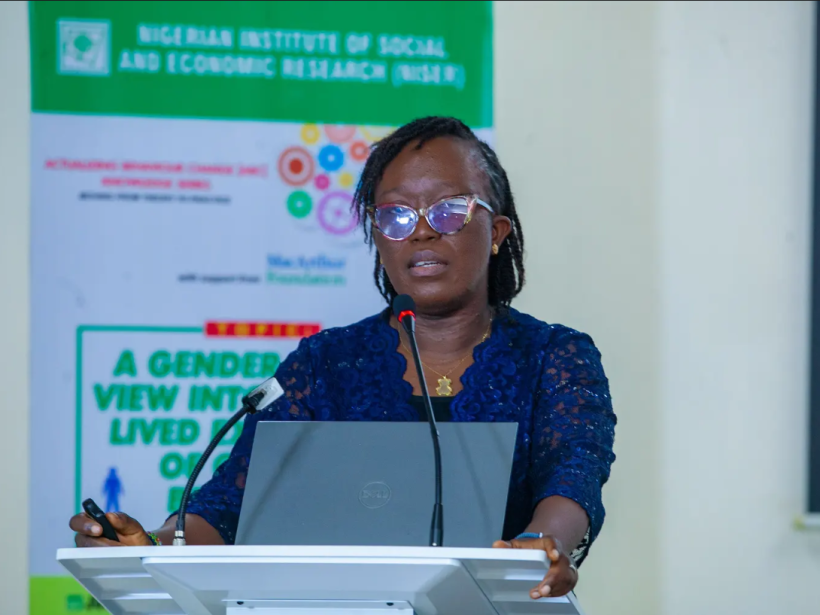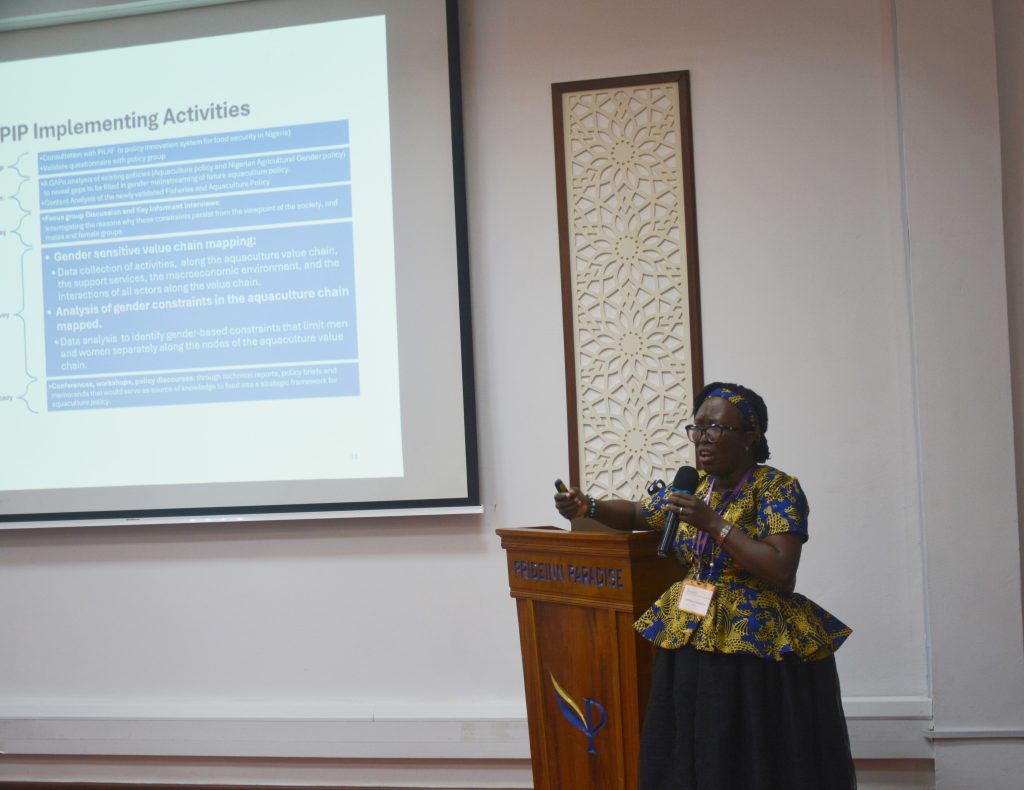
Aquaculture is vital to food and nutrition security, economic empowerment, and employment for millions globally. However, its benefits are not evenly distributed in households between men and women due to gender-based constraints that limit maximum returns.
“For decades now, Nigerian value chain analyses have connoted ‘household head’ as a single unit”, a challenge that glosses over the nuanced realities of men and women who drive activities along the agricultural value chains. said Dr. Temitayo Adeyemo, a Nigerian agricultural economist and a 2022 AWARD Policy Fellow in the Gender Responsive Agriculture Systems Policy (GRASP) Fellowship. She adds that the “household head” buries complexities of power dynamics in the household, like who controls resources, does what amount of labor, and who benefits from the labor—especially in Nigeria.
In Nigeria, men and women are involved in all nodes of the aquaculture value chain, but their activities are highly gendered. A recent report reveals that while men are mostly involved in the harvest sector of small-scale fisheries, women dominate the post-harvest activities. Moreover, gender norms and dynamics influence household decision-making over incomes and resources. Although women provide labor in fishing activities like net repairs, packaging, and preservation (which is often viewed as part of their household duties), men comprise most pond owners, making them the ultimate decision makers and higher earners.
With a passion for aquaculture and policy transformation, Temitayo notes that the gaps presented her with an opportunity to contribute to the future of equitable aquaculture in Nigeria.
Temitayo’s sentiments on power dynamics and gender disaggregated data speak to a significant challenge in Africa’s agrifood systems on women’s care work, contribution to the agrifood workforce, and their reward. While developing her Policy Innovation Project (PIP) as part of the activities in the GRASP Fellowship she had a clear goal: mainstreaming gender in the aquaculture sector with specific emphasis on generating gender-disaggregated data for the aquaculture value chain.

Temitayo notes that her proudest achievement to date has been developing a replicable, gender-disaggregated data model, Gender Sensitive Value Chain Analysis (GSVCA), for Nigeria’s aquaculture sector. The GSVCA is a groundbreaking survey tool that disrupts norms and charts a roadmap for change in the policy field.
“I wanted to move beyond generic data, just counting men and women. The tool is about understanding the intricacies of gender-based decision-making, access to institutional support, and the distribution of benefits, “she explains. “This data provides a foundation to monitor and measure progress and identify the gaps that policies need to fill,” she adds.
Temitayo proudly adds that the impact of the tool is immediate. Her findings will contribute vital evidence for Nigeria’s new Fisheries and Aquaculture policy, which had previously cited sex disaggregated data as a major limitation.
She attributes her renewed passion for simplifying research for policymakers to the GRASP Fellowship. The training offered in the Fellowship has equipped her with the ability to identify and analyze gender gaps in policies and identify entry points for influencing policy processes. She says she learned these skills from the leadership training and the Gender in Policy course, which she describes as “eye-opening.”
“The Fellowship provided me with tools to stretch beyond what I thought possible. I learned that meaningful research must go hand in hand with relevance. Today, I not only ensure that my research is evidence-based but also address policy gaps and reach the right ears,” I can now confidently say I am a policy influencer!” says Temitayo.
Her vision for the future of Nigeria’s agrifood goes beyond aquaculture. She is transferring the mind shift to academia, where she has begun teaching her students about policy relevance. She is also working to ensure that Nigeria has a sex-disaggregated database for each commodity to turn numbers into compelling narratives for transformation.
The GRASP Fellowship offers targeted leadership, gender, and mentoring training, and access to networks to enable women policymakers like Temitayo to lead policy-making processes for agricultural transformation in Africa.
